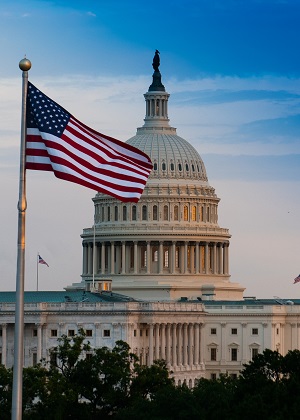Newsroom
Coronavirus: Trump declares national emergency; Congress, agencies work to provide relief
 President Donald Trump Friday declared a national emergency in the wake of the coronavirus. Doing so opens up $50 billion of funding for states and U.S. territories to address the virus, waives several restrictions on hospitals, and more. In addition, Congress continues to work to reach an agreement on emergency funding and the Small Business Administration (SBA) announced disaster relief lending.
President Donald Trump Friday declared a national emergency in the wake of the coronavirus. Doing so opens up $50 billion of funding for states and U.S. territories to address the virus, waives several restrictions on hospitals, and more. In addition, Congress continues to work to reach an agreement on emergency funding and the Small Business Administration (SBA) announced disaster relief lending.
NAFCU is maintaining close communication with the Trump administration, Congress, and regulators to ensure they are aware of what credit unions are doing to support members during the outbreak and of how they can provide regulatory relief to the industry.
Trump said by declaring the national emergency, the goal is to stop the spread of the coronavirus and help Americans that have been infected by the virus or impacted by it.
In Congress, the House postponed its recess that was set to begin Friday to reach a deal on emergency funding to address paid sick leave, free coronavirus testing, food assistance, unemployment insurance, and more. The Senate was also set to leave for recess but is staying through the week to finalize an emergency package.
SBA Administrator Jovita Carranza last week announced the agency would provide disaster assistance loans for small businesses affected by the coronavirus.
"Small businesses are vital economic engines in every community and state, and they have helped make our economy the strongest in the world," Carranza said in a release. "Our Agency will work directly with state Governors to provide targeted, low-interest disaster recovery loans to small businesses that have been severely impacted by the situation.
"Additionally, the SBA continues to assist small businesses with counseling and navigating their own preparedness plans through our network of 68 District Offices and numerous Resource Partners located around the country. The SBA will continue to provide every small business with the most effective and customer-focused response possible during these times of uncertainty."
More information on the SBA disaster assistance can be found here.
In addition, Sen. Marco Rubio, R-Fla., last week introduced legislation to further help small businesses impacted by the virus. The legislation specifically asks that the SBA's 7(a) loan program be opened more broadly "to provide near-term relief to America's small businesses that face payroll and operational challenges due to economic effects from the coronavirus pandemic."
Rubio's legislation could be rolled into Congress' emergency funding package. Many credit unions participate in the 7(a) loan program to provide capital to the nation's small businesses. NAFCU works closely with the SBA to expand access to credit union small-dollar loans for small businesses across the nation. NAFCU and the SBA in September signed a new Strategic Alliance Memorandum (SAM) to strengthen their partnership.
NAFCU will continue to provide credit unions with updates on administrative and congressional efforts to address the coronavirus. The association has a resource page available on the virus, as well as a new economic brief on its potential impact and a free webinar tomorrow to help credit unions prepare pandemic plans, and will continue to update credit unions on all developments that could impact operations, members, and the economy.
A new NAFCU Compliance Blog post today from Vice President of Regulatory Compliance Brandy Bruyere provides FAQs for credit unions related to the coronavirus (read it here).
Share This
Related Resources
Get daily updates.
Subscribe to NAFCU today.
